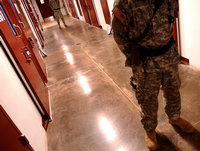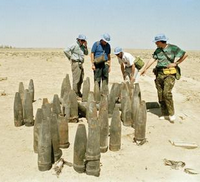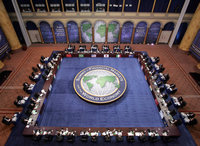
MORE MONEY FOR PAKISTAN — There was good news for Pakistan and bad news for India from Washington this week. Pakistan, which has done a poor job of suppressing Taliban and al-Qaida incursions into Afghanistan at a cost of American and NATO lives, is likely to have an extra $5 billion of the U.S. taxpayers’ money lavished on it in extra aid. This one-time grant would be in addition to the $1.5 billion annual package over ten years now awaiting passage through congress. Meanwhile, the Indian media has interpreted a statement in President Obama’s first address to Congress on Tuesday […]



